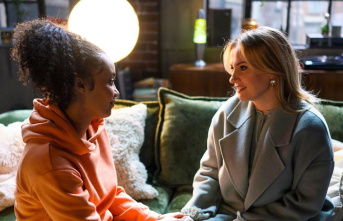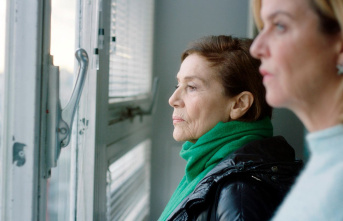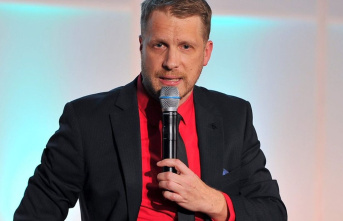Because of the violent protests in France, King Charles III. canceled his trip to Paris, giving Germany a historic visit. The state visit of the British monarch and his royal wife Camilla with stops in Berlin, Brandenburg and Hamburg in the coming week will take place as planned. The government in London and the Office of the Federal President confirmed this today. This means that Germany will now be Charles' first foreign destination as king.
Change of plan due to riots in France
The royal couple was originally expected in France from Sunday to Wednesday. But the dispute over President Emmanuel Macron's pension reform has escalated there, with protests repeatedly leading to riots.
In the southern French city of Bordeaux, which Charles was also supposed to visit, there was a fire at the entrance to the town hall on Thursday evening. The unions have called for a new day of strikes and protests on Tuesday. A new visit date has not yet been set. "Their Majesties very much look forward to the opportunity to visit France once a date has been found," the palace said.
Now the focus is all the more on Germany. Charles and Camilla are expected here from Wednesday to Friday (March 29th to 31st). They are following an invitation from Federal President Frank-Walter Steinmeier. In Berlin, the state visit - also independent of the cancellation of the previous visit to France - is of paramount importance. The Office of the Federal President emphasized on Friday "that with this visit we are really opening a new chapter in Anglo-German relations".
Destinations that matter
The fact that the British government, which determines the royal trips abroad, chose the important EU countries France and Germany as Charles' first foreign destination is considered an important sign. Prime Minister Rishi Sunak wants to break with the confrontational course of his predecessors Boris Johnson and Liz Truss, who attracted attention above all with provocations and taunts against the EU. Truss once said during her short tenure that she had not yet decided whether Macron was a friend or foe.
Sunak, on the other hand, relies on rapprochement and trust. Thanks to his quiet and realpolitik course, an agreement was reached in the dispute over Brexit rules for Northern Ireland after years of dispute. King Charles played a central role in this: he received - at the request of the government - the head of the EU Commission, Ursula von der Leyen, at Windsor Castle for tea.
Hardcore Brexiteers were outraged and criticized Sunak for politicizing the king, who is traditionally apolitical. But the prime minister prevailed: the House of Commons voted overwhelmingly in favor of the deal, and a right-wing revolt in the Conservative Party led by ex-Prime Minister Johnson failed.
The selection of the first destination also caused some resentment in some countries of the Commonwealth of States, which Charles presides over as British monarch. After taking office, Australia, where approval of the king as head of state is dwindling, was considered the first foreign post for a long time. But Sunak wanted to use the "soft power" of the monarchy in the conflict with the EU, Charles biographer Catherine Mayer told the German Press Agency. He wants to build bridges. "This is a sure and clear way to do it."
In addition, there are probably practical considerations: a trip to the EU is easy compared to a flight to the other end of the world. Charles and Camilla are already 74 and 75 years old, respectively, and both suffered from Corona several times. "We're talking about a period where his big moment is coming - and he wants to be in top form for that," Mayer said. The British King Charles III. will be crowned on May 6, 2023. The ceremony will take place at Westminster Abbey in London.
Approach works
In any case, the new British rapprochement strategy is working in relations with Germany. In Bellevue Palace on Friday it was pointed out that the then Prime Minister Theresa May had submitted Great Britain's request to leave the EU on March 29, 2017 - and exactly six years later to the day, King Charles is now being ceremonially welcomed at the Brandenburg Gate. "On this day we let the turmoil of the separation, which has been in the foreground for many years, take a back seat and look forward together with Great Britain," it said.
The Office of the Federal President also referred to Prime Minister Sunak's new, more cooperative attitude towards the EU and to the fact that Germany and Great Britain are Ukraine's biggest military supporters in Europe. In the area of security policy in particular, people are closer together than ever since Brexit, it said. There is also an emotional level. Charles and Steinmeier are "connected in sympathy and personal affection," according to Bellevue Palace.
For President Macron, the cancellation is likely to be a setback. The pension reform is considered one of his central projects. The dispute over this has significantly weakened the government. Charles and Camilla's royal glamor could have distracted from that. Macron had already invited Charles to the funeral services for his mother Queen Elizabeth II in September. "We would not be serious and would lack common sense if we were to suggest to His Majesty the King and Queen that they come for a state visit in the midst of the demonstrations," Macron said after an EU summit in Brussels. Paris had previously said Charles should be received under conditions consistent with the friendly relationship between the two countries.











